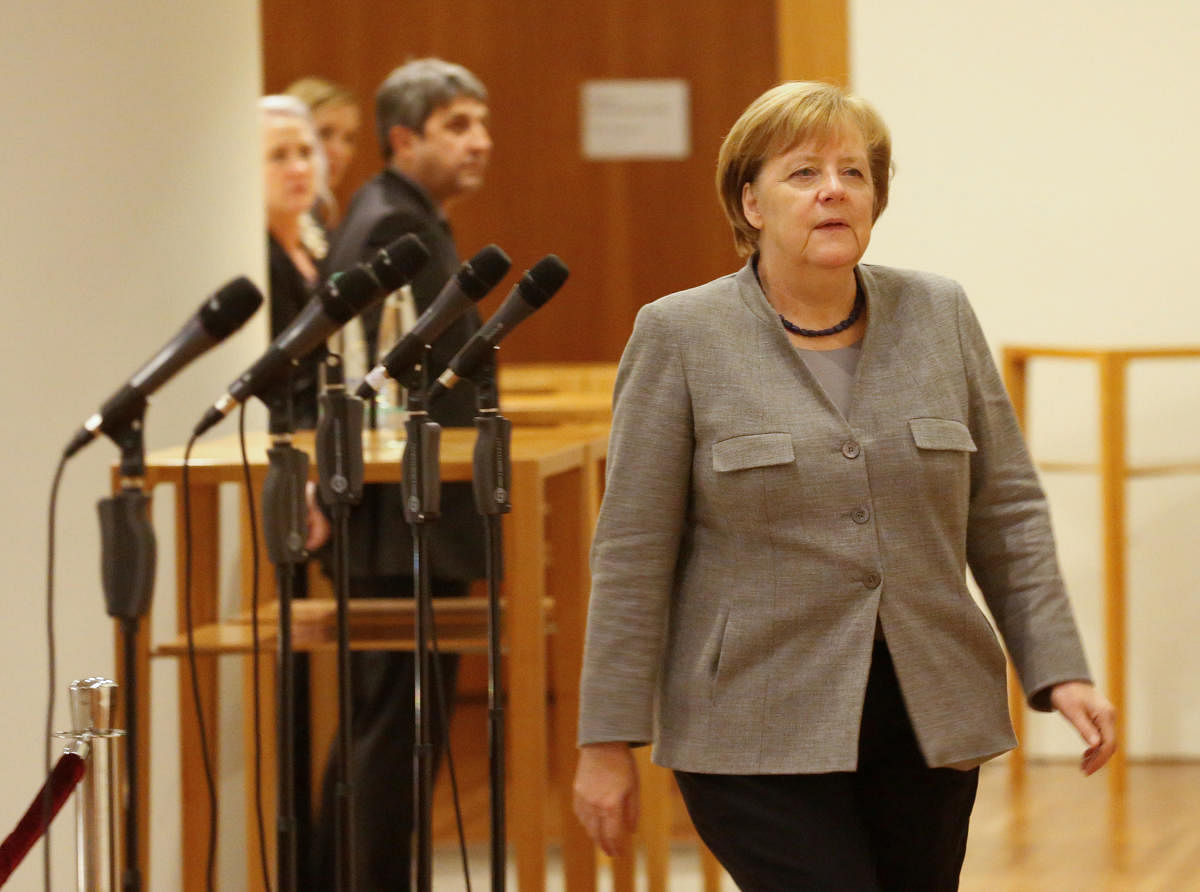Chancellor Angela Merkel was left scrambling for ways to drag Germany out of a crisis on Monday after high-stakes talks to form a new government collapsed, potentially forcing Europe's top economy into snap elections.
Germany now faces weeks, if not months of paralysis with a lame-duck government that is unlikely to take bold policy action.
With no other viable coalition in sight, Germany may be forced to hold new elections that risk being as inconclusive as September's polls.
Angela, whose liberal refugee policy has proved deeply divisive, had been forced to seek an alliance with an unlikely group of parties after the ballot left her without a majority.
But following more than a month of gruelling negotiations, the leader of the pro-business FDP, Christian Lindner, walked out of talks overnight, saying there was no "basis of trust" to forge a government with Angela's conservative alliance CDU-CSU and ecologist Greens.
"It is better not to govern than to govern badly," he said, adding that the parties did not share "a common vision on modernising" Germany.
Voicing regret for the FDP's decision, Angela vowed to steer Germany through the crisis.
"As chancellor... I will do everything to ensure that this country comes out well through this difficult time," she said.
News magazine 'Der Spiege'l called the breakdown in negotiations a "catastrophe" for the chancellor and said Germany, long seen as an island of stability in a turbulent West, was having its "Brexit moment, its Trump moment".
The Euro fell following the news, although analysts said the longer-term implications for the currency were not yet clear.
The negotiations, which turned increasingly acrimonious, stumbled on a series of issues, including immigration policy.
Angela's liberal refugee policy that let in more than one million asylum seekers since 2015, had also pushed some voters to the far-right AfD, which captured 12.6% of the vote after an Islamophobic and anti-immigration campaign.
The parties also differed on environmental issues, with the ecologists wanting to phase out dirty coal and combustion engine cars, while the conservatives and FDP emphasised on the need to protect industry and jobs.
Angela could now try to convince the Social Democratic Party (SPD), which has been the junior coalition partner in her government since 2013, to return to the fold.
But after suffering a humiliating loss at the polls, the party's top brass has repeatedly said the SPD's place was now in the Opposition.
Angela, who has been in power for 12 years, could also lead a minority government although she had signalled that she was not in favour of such instability.
Germany could, therefore, be forced to hold new elections, which would have to be called by President Frank-Walter Steinmeier.
But that is not without peril for Angela, who would face questions from within her party on whether she is still the best candidate to carry their banner into a new campaign.
Top-selling 'Bild' daily said a failure to forge a tie-up - a so-called "Jamaica coalition" because the parties' colours match those of the Jamaican flag - put "her chancellorship in danger".
A poll by 'Welt' online also found that 61.4% of people surveyed said a collapse of talks would mean an end to Merkel as chancellor. Only 31.5% thought otherwise.
